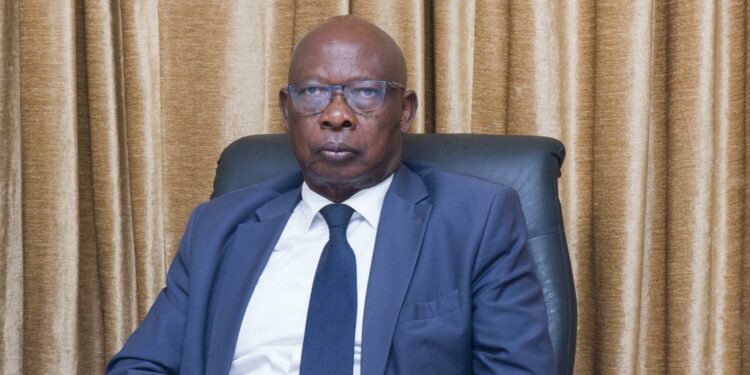As Uganda prepares to commemorate the International Day for Older Persons on October 1, 2024, the government is taking critical steps to restore values and respect for the elderly, following a series of alarming statistics on the neglect and abuse of older persons.
The revelation was made by the Minister of State for Older Persons, Dominic Mafwabi Gidudu, who revealed these plans on the floor of Parliament, on Wednesday where he emphasised the growing disconnect between the younger generation and the elderly, largely influenced by modernity and Western culture.
In his address to the August House, the Minister highlighted the diminishing intergenerational relationship, where younger Ugandans fail to appreciate the wisdom and guidance of their elders. “Limited intergenerational dividends, with the young generation failing to appreciate the guidance and wisdom of Older Persons, due to modernity and influence of the Western culture remains a challenge,” said Gidudu. This, he noted, necessitated urgent government intervention through the enactment of the Older Persons Bill, designed to promote respect and value for elderly persons across the country.
The urgency of this legislation has been inspired by disturbing statistics on elder abuse and neglect. According to the Uganda Population and Housing Census conducted in June 2024, older persons aged 60 years and above constitute 5 per cent of the total population, translating to 2.3 million elderly people. Shockingly, 86 per cent of these older persons experience neglect and isolation at the hands of their caregivers.
Additionally, 44.7 per cent are victims of domestic violence, while nearly half (49 per cent) endure psychological abuse, often through threats, humiliation, and verbal or non-verbal mistreatment.
“Neglect and isolation, whether by caregivers or through self-neglect, is rampant among older persons. Our findings reveal that 86 per cent of elderly Ugandans suffer from neglect, and this can no longer be ignored,” Minister Gidudu stated. He further stressed that domestic violence within intimate relationships disproportionately affects older women, with many enduring violence aimed at maintaining power and control.
In response to these pressing issues, the Ministry of Gender, Labour, and Social Development also plans to regulate care homes for older persons, similar to the regulation of children’s homes.
The minister explained that with the rapid rural-urban migration and the busy work schedules of many Ugandan families, the traditional family support system has weakened. This has left many elderly people vulnerable to neglect, especially in rural areas where family care has been compromised.
“Though in principle, the government does not promote institutional care, we’ve observed that more homes for the elderly are being established by the private sector due to the weakened family system. The Ministry will work with the Attorney General to ensure these homes are properly regulated,” said Minister Gidudu.
The minister acknowledged that while institutional care is not the preferred model, the reality of Uganda’s evolving society necessitates alternative solutions. He highlighted that as compulsory education for children and urban migration take precedence, the elderly often remain forgotten in rural areas, leading to an increase in private-sector care facilities.
According to Minister Gidudu, the Ministry of Gender, Labour, and Social Development aims to foster a society where the wisdom of older generations is cherished, and their needs are adequately met, free from abuse and neglect.
The new law is set to provide a much-needed framework for the care of Uganda’s ageing population, with the promise of creating a more compassionate and respectful intergenerational society.
Do you have a story in your community or an opinion to share with us: Email us at editorial@watchdoguganda.com













